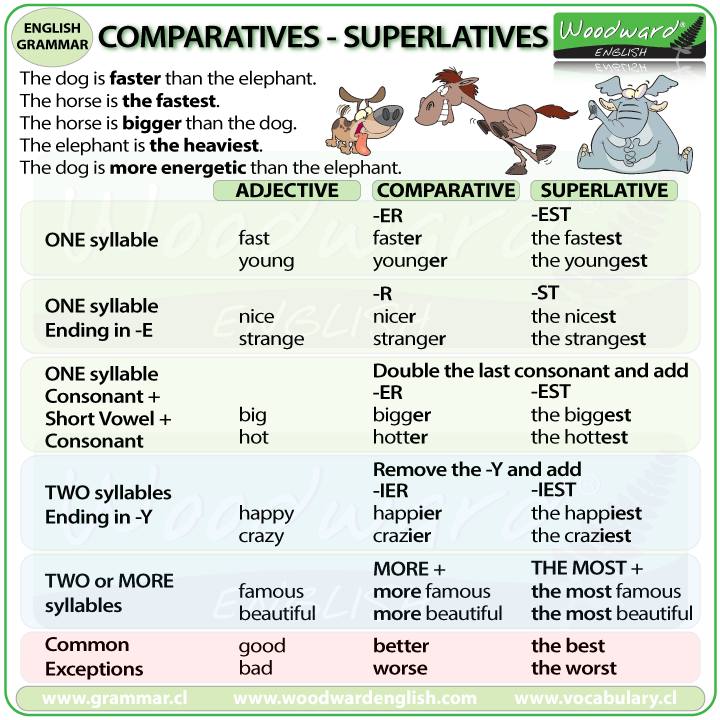Watch the video and Pay attentions
Countries and Nationalities
Let's Practice
liveworksheets
liveworksheets
WELCOME TO THE PLACE WHERE YOU CAN FIND THE TOPICS AND THE ACTIVITIES THAT YOU HAVE TO LEARN AND DEVELOP IN YOUR COURSE. HAVE A GREAT TIME!






| EXCEPTIONS | COMPARATIVES | SUPERLATIVES |
|---|---|---|
| Si el adjetivo acaba en vocal -E | Solo se le añade -R | Solo se le añade -ST |
Wide
Ancho
|
Wider
Más ancho
|
The widest
El más ancho
|
| En las palabras terminadas en consonante + vocal + consonante | Se dobla la última consonante y se añade -ER | Se dobla la última consonante y se añade -EST |
Big
Grande
|
Bigger
Más grande
|
The biggest
El más grande
|



| EXCEPTIONS | COMPARATIVES | SUPERLATIVES |
|---|---|---|
| Si el adjetivo termina en consonante más -Y | Se sustituye la -Y por -IER | Se sustituye la -Y por -IEST |
Easy
Fácil
|
Easier
Más fácil
|
The easiest
El más fácil
|



| ADJETIVOS IRREGULARES | COMPARATIVES | SUPERLATIVES |
|---|---|---|
Good
Bueno
|
Better
Más bueno / mejor
|
(The) Best
El más bueno / el mejor
|
Bad
Malo
|
Worse
Más malo
|
(The) Worst
El más malo
|
Far
Lejos / lejano
|
Futher / farther
Más lejos / lejano
|
(The) Furthest / Farthest
El más lejos / lejano
|
| ADJECTIVE | COMPARATIVE | SUPERLATIVE | |||
|---|---|---|---|---|---|
| Monosílabos | Tall | -ER | Taller | The -EST | The tallest |
| Bisílabos | Clever | More -ER | More clever Cleverer | The most The -EST | The most cleverThe cleverest |
| Bisílabos terminados en -Y | Happy | -IER | Happier | The -IEST | The happiest |
| Más de dos sílabas | Dangerous | More | More dangerous | The most | The most dangerous |
| Irregulares | Good Bad | Forma concreta | Better Worse | Forma concreta | The best The worst |


